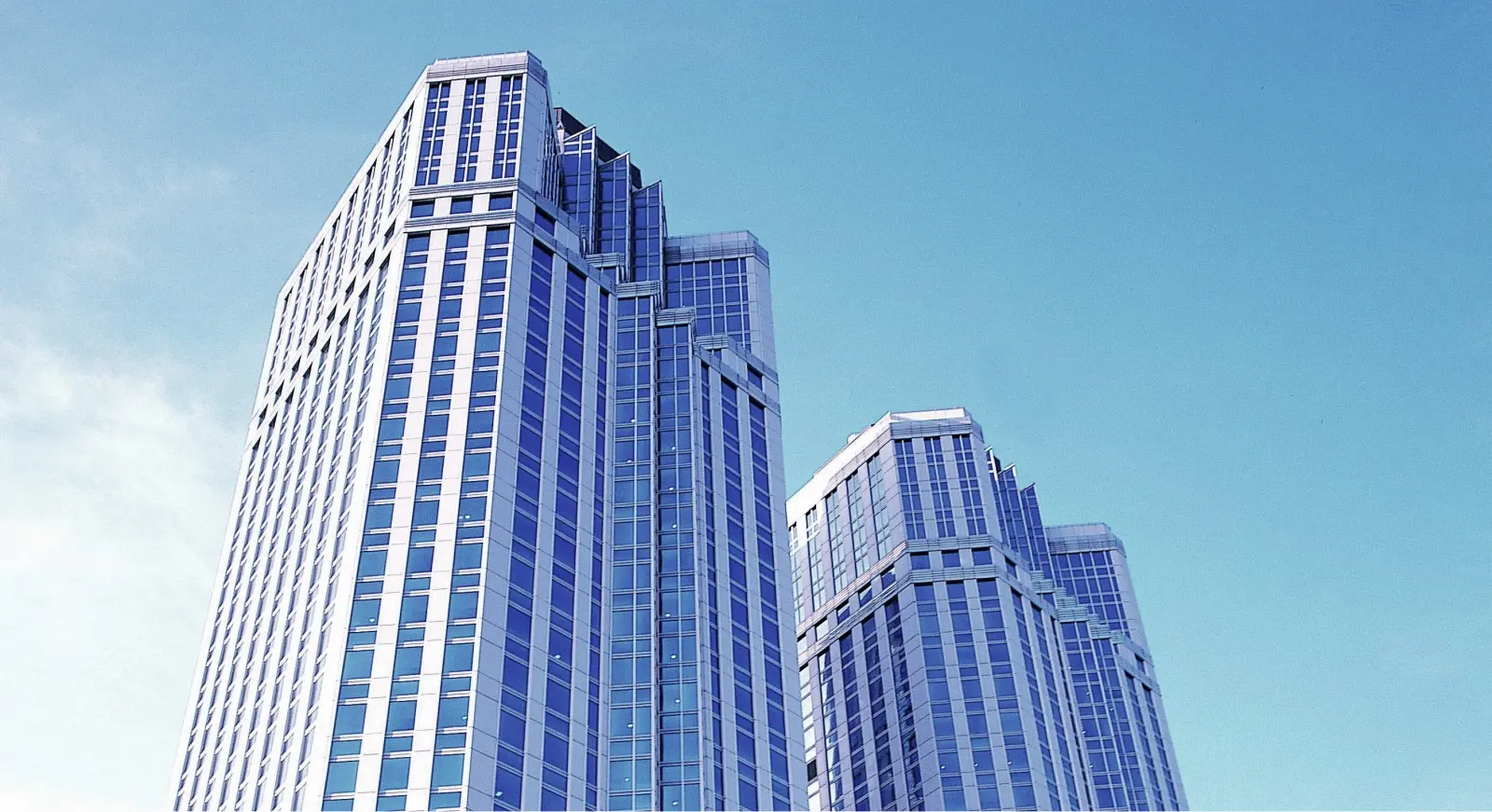Distinguished Stakeholders,
We sustained our growth despite the existing conjuncture.
2023 was marked by geopolitical risks besides global economic turbulences. While this predicament braked global
growth, it caused surged funding costs and increased unemployment on a global scale. Led by the central banks of
developed countries, numerous central banks transitioned to the tight monetary policy for combating high inflation
that has been influential worldwide.
The existing situation harnessed growth of individual sectors as well. Although such challenging periods bear negative impacts on the real estate sector, investing in real estate and homebuying, in particular, has always been the foundation stone of a secure future and an important investment instrument for people living in Turkey. As İş REIC, we continued to develop projects that will create value based on our sustainable growth and profitability principle in 2023. Our residential projects made our main focus.
We continued to search for plots and real estate for developing projects of a size befitting our scale.
The successful performance results we recorded in 2023 were once again underpinned by our financial capabilities and institutional competencies that we keep furthering, while preserving our robust balance sheet composition.
We quickly adjusted to the tough economic conjuncture of 2023 when accessing financing has become a challenge for project developers and consumers alike, and we focused on cost management. As we successfully managed our borrowing by paying attention to the leverage effect in financing, maturity/funding diversification and matching, we were able to generate different and diversified payment plants for our customers.
We captured a positive momentum by concentrating on the sales target in our projects in development and construction phases. We divided the Ömerli Kasaba Project that we will initiate in 2024 into stages to effectively manage cost and demand. We introduced measures to increase rental income with the goal of improving rental income from office spaces to the extent allowed by market conditions and contractual terms. To this end, we renewed some rental contracts within the frame of market conditions, while we added new tenants to the portfolio at current rental figures. Through all these actions, we attained positive results in rental and sales revenues. We believe that the effects of this momentum will go on in 2024 and will contribute to our results for 2024 and following years. The sales from our residential portfolio outperformed the sector’s average particularly in the second half of the year. While we secured high rises in our rental income on the one hand, we introduced solutions that would not overwhelm our tenants on the other in the rental office and business place market that was reshaped after the pandemic.
In 2023, our total assets amounted to TL 33.2 billion while our total property portfolio was worth TL 32.5 billion, as our shareholders’ equity maintained its strong level at TL 27 billion.
As we ended 2023 in line with our targets, we focused on the projects we will carry out in 2024.
In 2024, we will keep growing with four projects.
At present, there are two projects currently in construction, and there are two others we are planning to start in the first quarter of 2024. Our İstanbul Financial Center and Litus İstanbul projects are underway, and we are intending to kickstart Ömerli Kasaba Project and Balmumcu Project soon.
In 2024, we will be carrying on with the development of our Tuzla residential project. For Profilo Shopping Mall project, development work is being carried out by Artaş İnşaat as per the agreement made.
Our İstanbul Financial Center project, which comprises of offices and commercial space, has an approximate leasable/salable area of 33 thousand m². The project’s full investment cost excluding the plot price is expected to add up to USD 105 million. We are targeting to commence leasing activities for the project in 2024. We project an annual rental income of nearly USD 9.5 million. In the same period, we are planning to start the renovation of Maslak Office Building. We are targeting to derive rental income on both properties upon leasing the Maslak Office Building following the completion of the renovation, and upon commencement of operations in the IFC area.
The Litus İstanbul residential project we are co-developing with Tecim in Altunizade comprises of six residential blocks and one office block containing 98 units. With its sales under way, Litus İstanbul is targeted to be completed in 2024.
In 2024, we are intending to introduce the project that will be developed as a continuation of Kasaba Evleri Project we have completed in Ömerli earlier. Located on a plot with a total area of 138 thousand m², Kasaba Project consists of 165 villas. In the project that has an estimated total development cost of USD 200 million, including the plot price, our Company will have an approximate share of 44%. The project is planned to be developed in various phases, with the first phase planned to comprise of 61 villas, and other phases to be undertaken depending on the demand.
The other project we are aiming to introduce in the short term is the Balmumcu Project that can be characterized as a boutique project of approximately 70 high-quality residential units. With an estimated total investment cost of USD 23 million, including the plot price, the construction of the project is targeted to be commenced in 2024 upon completion of the legal permission and licensing procedures.
Regarding our Profilo Shopping Mall Residential Project, Artaş İnşaat is carrying on with the work for the residential project it will develop on the shopping mall’s plot in line with the Agreement for Revenue Sharing for Plot Interest and Construction in Return for Flat. In this project whose entire cost is borne by Artaş İnşaat, our minimum revenue share will be USD 65 million.
We left behind a tough year for the sector with respect to the residential segment.
Having reached high sales figures in 2021 and 2022, the housing sector slackened in 2023. According to the figures released by TurkStat, housing sales across Turkey dropped to the lowest level of the past nine years in 2023.
Housing prices also surged, accompanying the inflation that has been high throughout the year. While mortgage sales was repressed by the restrictions imposed on the housing loan side despite the low interest rate environment in the first half of the year, housing purchases for investment purposes continued. In the second half of the year, on the other hand, rising interest rates reflected negatively on borrowing and added speed to the decline in mortgage sales of housing, while housing purchases for investment purposes also took a downturn with the emergence of alternative returns.
Housing sales to foreigners also slumped by 48% and stood at 35,000.
On the retail front, with the gradual lifting of the pandemic-imposed lockdowns and the normalization kicking in slowly, occupancy rates and TL-based revenues in shopping malls generating rental income based on turnover started to go up.
Looking at the office market, the demand that diminished upon the transitioning to remote working format during the pandemic picked up once again as hybrid working system started disseminating. Occupancy rates in central locations such as Levent and Maslak are quite high. Rental income also increased above the inflation in terms of Turkish lira. In the office market that saw some increase in supply as part of the İstanbul Financial Center became operational in the second half of the year, further reduction is anticipated in vacancies on the European side where supply is relatively limited along with continued uptrend in revenues.
Real estate is the most reliable investment instrument that is highly demanded in Turkiye.
The main agenda items for the sector in 2024 will be financing of housing sales, purchasing power, incentives, construction of earthquake-resilient buildings, urban transformation and green transformation.
We project that inflation will slide down in line with the monetary policy targets, which will bring about a decrease in financing costs. We believe that home selling and buying prices and rental fees will come to a balance, as inflation declines and purchasing power recovers particularly in the coming period.
Being a country and a sector that experienced similar course of events amid the crises we have been through in the past, we have gained significant experience in this respect. Making an assessment with a broader perspective and considering that real estate is the most reliable investment instrument that is highly demanded particularly in Turkey, we think that the demand in the sector will be kept alive through various campaigns and payment options to be offered.
We are passing on a legacy to the future through reliable investments.
The real estate sector will preserve its importance and continue to act as the engine of the Turkish economy in 2024 and in the years that follow. Given the fact that Turkey is an earthquake-prone country and the incentives provided, urban transformation will maintain its importance in 2024. As İş REIC, we will be focusing mainly on our new projects in the coming period. Green transformation is likely to be another topic that will remain significant with respect to the real estate sector.
At İş REIC, we are actively continuing with project developments in line with our mission to ensure permanence of the value we create for our stakeholders on the back of sustainable growth and profitability principles. We are passing on a legacy to the future through reliable investments.
I would like to extend my heartfelt thanks to our principal shareholder İşbank, our Board of Directors, and all our stakeholders, notably our shareholders, employees and business partners, for their unyielding support and trust.
Sincerely,
Ö. Barlas Ülkü
CEO


 TR
TR







